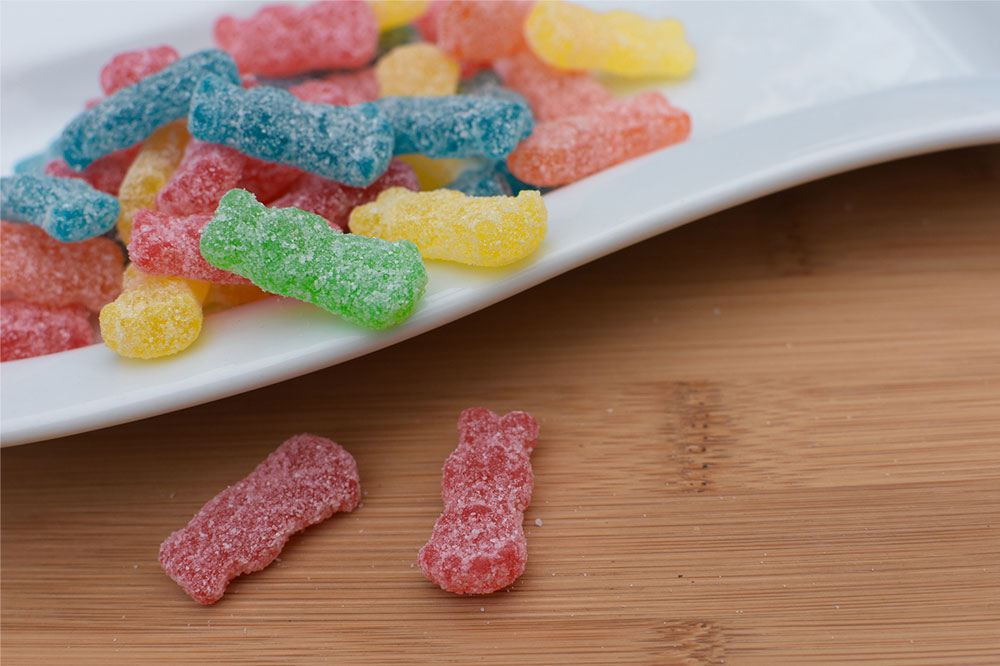
9 common foods that are detrimental for teeth health
Our teeth help us chew and digest foods, speak clearly, and give the face its shape. So, it is crucial to make food and lifestyle choices that keep the ectodermal organs safe and robust. One way to manage teeth health is by eating foods that serve as natural mouth cleansers. Conversely, individuals should also avoid some foods that may damage their teeth. Thus, here are nine foods to exclude from one’s meals for dental health.
Bread
Whether it’s breakfast, lunch, or dinner, bread is usually a staple part of most meals. However, it is also one of the worst foods when it comes to maintaining teeth health. When one chews on bread, the saliva breaks down starches into sugar. Once the bread turns into a gummy paste-like substance in the mouth, it may stick to the crevices between teeth, which could lead to cavities. Therefore, if one wants to eat foods rich in carbs, one should look for less refined options like whole wheat. Whole wheat breads contain lower amounts of added sugars and do not break down quickly.
Sour candies
Most people enjoy munching on candies following a meal or at other times in the day. But this is one of the worst foods for an individual’s overall health, including teeth quality. Furthermore, sour candy contains varied types of acids that are tougher on the teeth than regular candy. Since they are chewed, the mixture may stick to the teeth for longer periods. Therefore, those who consume excessive amounts of sour candy are at a higher risk of experiencing tooth decay. Instead of sour candy, one could switch to a bar of chocolate, which is much easier to chew and wash away. However, the person should visit a dentist to determine if they should completely exclude sweets from their meal regime.
Citrus fruits
While citrus fruits are rich in several nutrients, such as vitamin C, they could damage the teeth when eaten in excess. The acidic content in fruits like lemons, grapefruits, and oranges may erode the enamel and make the teeth susceptible to decay. One should also remember that squeezing a lime in water could add acid to the liquid, which is also harmful to the teeth. People with mouth sores should also avoid citrus fruits, as the food could irritate the affected regions. Suppose an individual needs to include more antioxidants and vitamins in their meals. In that case, they should eat or drink citrus juice in moderation during mealtimes and ensure they rinse their mouth afterward.
Apple cider vinegar
Vinegar is another ingredient that people consume because it possesses certain health benefits. However, one should avoid consuming it in its concentrated form as it is highly acidic and may wear down the enamel. The process could leave teeth susceptible to decay and permanent damage. One should dilute apple cider vinegar before consuming it to moderate its effects on oral health.
Potato chips
Everyone enjoys munching on chips, whether it’s at the movies, at home, on the move, or even while working. However, processed food can adversely affect the teeth and one’s overall health. Potato chips contain starch, which turns into sugar and gets trapped on and between the teeth. The property acts as food for unhealthy bacteria in the plaque, which can damage the respective tooth. Furthermore, potato chips also result in acid production. So after eating processed foods like potato chips, one should brush and floss to remove particles trapped between teeth.
Carbonated beverages
Drinking carbonated beverages occasionally is okay. However, consuming too much of this drink could damage the teeth. Carbonated beverages may lead to plaque producing more acid that can deteriorate the tooth enamel. Therefore, sipping on sodas throughout the day can result in coating them with acid. The drink may also dry out the mouth, resulting in lower salvia production. Moreover, dark-colored sodas may discolor or stain the teeth. Therefore, one should avoid fizzy drinks if one notices any changes in the quality of their teeth.
Ice
Chewing on ice can help cool the body and be quite fun. However, people may not realize that these cubes might be detrimental to teeth health. Chewing on frozen substances could affect the enamel and lead to cracked, chipped, or broken teeth. Biting ice could also have adverse effects on crowns and make them loose. Those who want to enjoy something chilled could add ice to their beverage or glass of water but should avoid chewing on the frozen liquid.
Dry fruits
Eating dry fruits like prunes, figs, raisins, and apricots may offer a few health benefits. However, consuming too much could damage the teeth and result in poor oral health. Dry fruits are sticky and may cling to teeth or enter its crevices when eaten, making it one of the worst foods for teeth health. Finally, dry fruits leave sugars in the mouth, which could result in conditions like cavities. So, one should rinse their mouth with water after eating dry fruits, followed by brushing and flossing thoroughly.
Coffee
A cup of coffee is a great way to boost energy levels at work, as it helps stay more focused or awake for longer. However, drinking excessive coffee can have harmful effects on one’s health and may also damage the teeth. Coffee is naturally acidic and may wear out the teeth’s enamel. The drink also contains tannins, which are molecules that cause color compounds to stick to the teeth. Therefore, those who drink coffee regularly may notice staining and discoloration on some teeth. If one does not want to stop having the beverage, they ought to consider moderating its consumption. Drinking coffee through a straw and brushing the teeth right after may also help prevent major damage.


